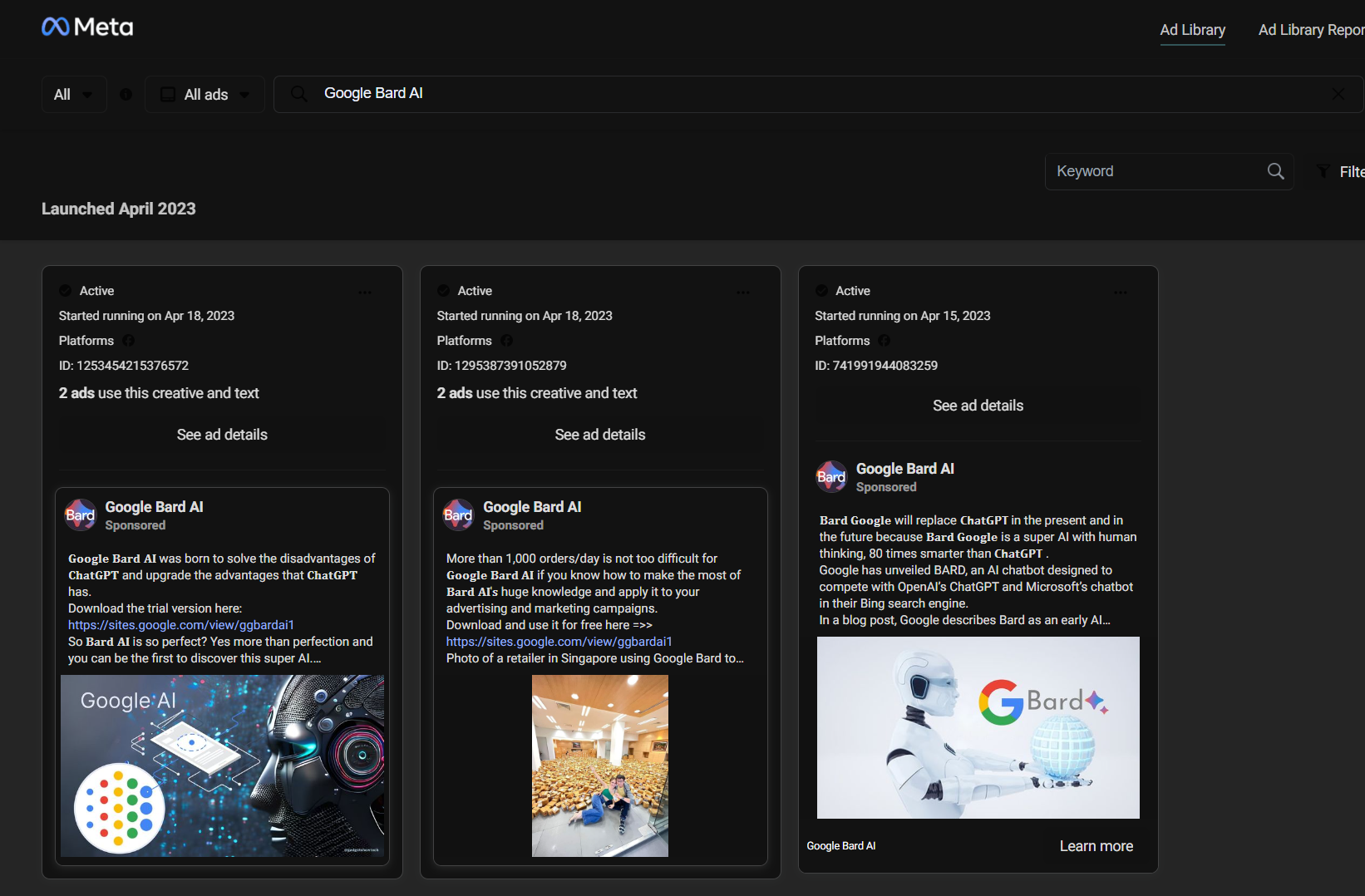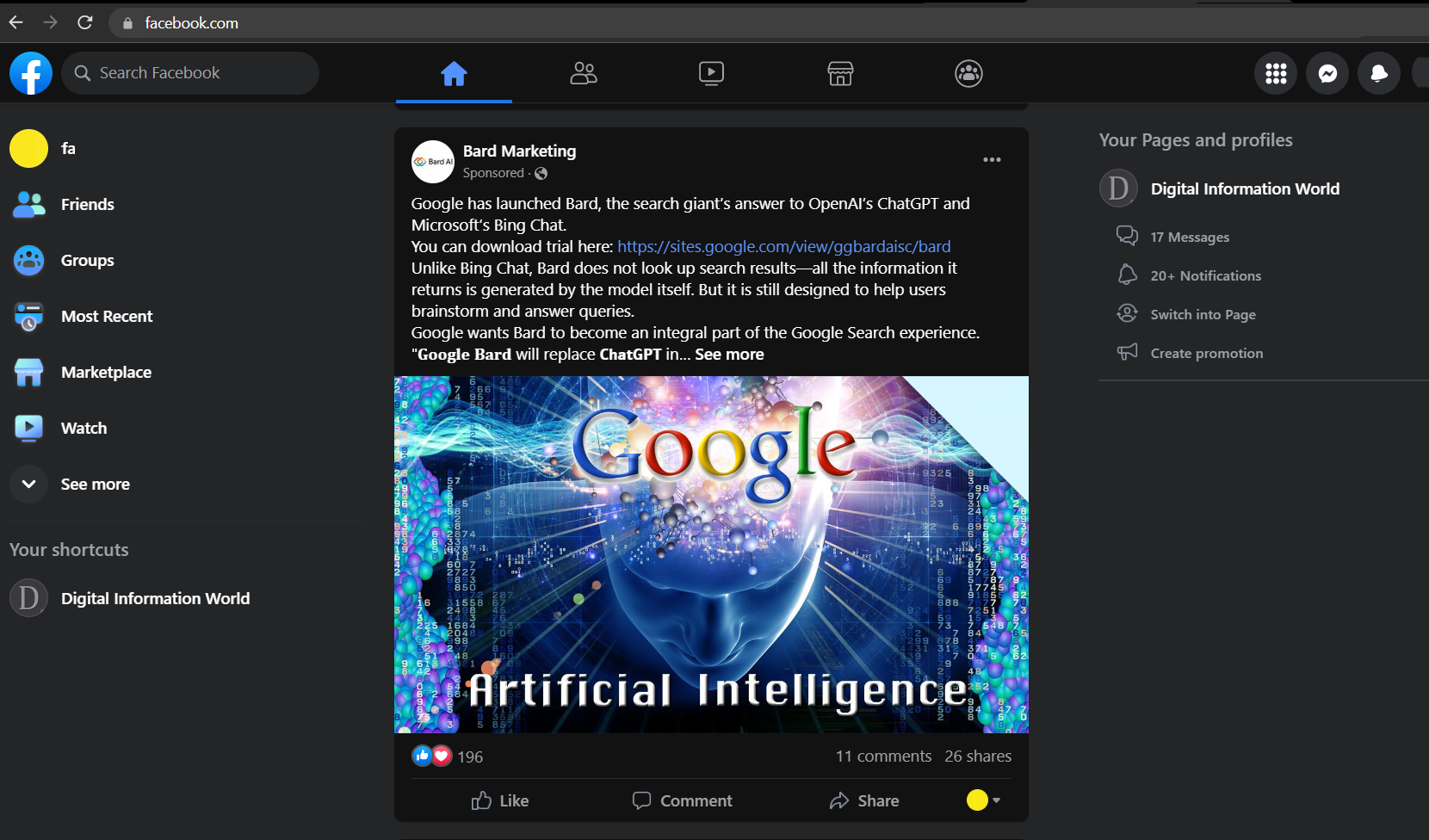Social media consumers are being alerted of a new scam that involves fraud advertisements of various hit AI platforms, such as ChatGPT & Google Bard. The reports have emerged as an increasing number of people have been hunted by fraudsters, who use the names of these platforms to deceive consumers into clicking on ads and handing over their sensitive info.
As per the investigations, hackers are using the names of famous AI platforms to create fake Facebook accounts and post promotions that lead consumers to phishing websites. Once an individual clicks on the post, they are taken to a fraudulent webpage that asks for their private info.
The investigation alerts that individuals should be cautious when clicking on promotion posts and links on social media sites, especially if they are from companies they don't recognize. It also advises them to be careful about giving out their personal information and to always check the legitimacy of a website before entering any sensitive information.
The scammers behind these activities are likely using the stolen information to commit identity theft or fraud. They may use the information to open new bank accounts, apply for credit cards, or make purchases online.
Facebook has responded to the report by disabling and combating these types of activities, as it is committed to protecting its consumers' privacy. The social media giant said that it uses a range of tools and technologies to detect and prevent fraudulent activity on its platform, including automated systems that scan for such things.
It also encourages people to report any suspicious activity they see on the platform. It has a dedicated reporting system that allows users to flag content that they believe is fraudulent or deceptive.
The rise of fake advertisements on the internet is just the latest example of scammers using social media to target unsuspecting individuals. The research highlights that these types of scams are likely to continue, as scammers become more sophisticated in their techniques and more brazen in their attempts to deceive consumers.
As such, people must remain vigilant when using social media platforms and take steps to protect their personal information. By following simple guidelines such as being cautious about clicking on advertisements and links, checking the legitimacy of websites, and reporting suspicious activity, they can help to keep themselves safe from scams and fraud.
Read next: Alarming New Report Finds 82% Of Open Source Software Risky Thanks To Major Vulnerabilities And Security Issues
by Arooj Ahmed via Digital Information World



No comments:
Post a Comment